Onde Estamos
Rod. Dom Pedro I, km 47
Nazaré Paulista, SP, Brasil
Caixa Postal 47 – 12960-000
Tel: (11) 3590-0041
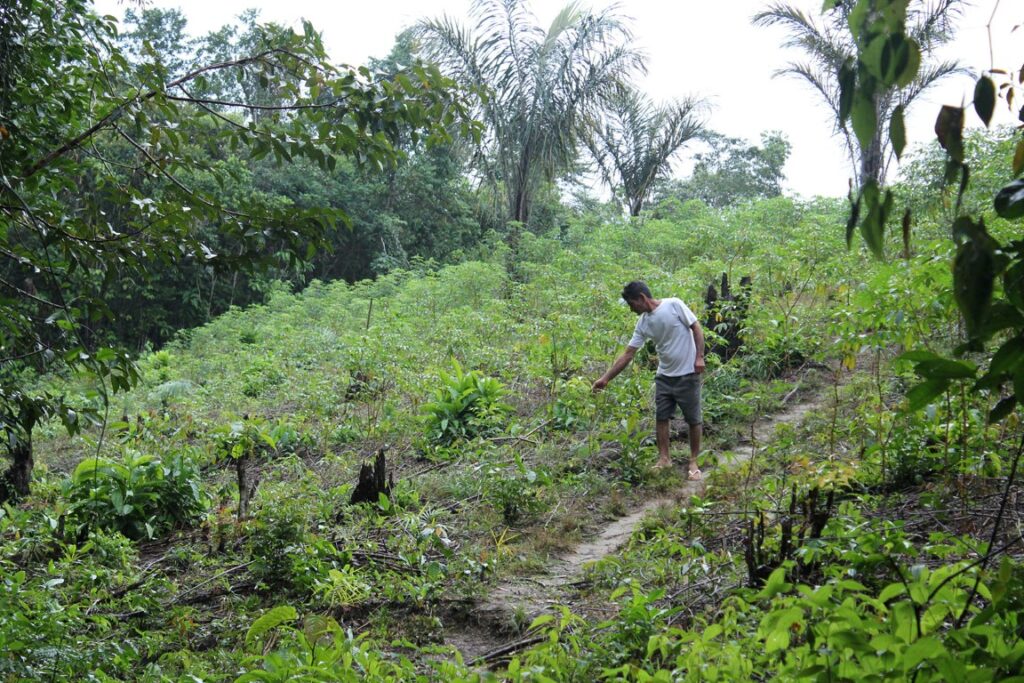
IPÊ seeks to act on issues of agriculture, food safety, and cultural valorization, opening new action fronts for the conservation and sustainable use of biodiversity. This project began in 2005, and to this day is the basis of the Institute’s work in the region.
Sociobiodiversity is a concept that involves the relationship between biological diversity, traditional agricultural systems (agrobiodiversity) and the use and management of these resources together with the knowledge and culture of traditional populations and family farmers. These are “goods and services generated from biodiversity resources, aimed at forming production chains of interest to traditional peoples and communities and family farmers, which promote the maintenance and enhancement of their practices and knowledge, and ensure the resulting rights, generating income and promoting the improvement of their quality of life and the environment in which they live” (National Plan for the Promotion of Chains of Socio-Biodiversity Products – MDA/MMA/MDS).
It is assumed that these resources, services and products, as well as the “know-how” developed by these populations, have received little attention in conservation strategies. The Rio Negro’s history of exploitation contributes to this, due to the specialization of productive activities, especially logging, which has led to the abandonment of traditional agricultural and extractive practices. The erosion of agricultural diversity is particularly important in the case of the Amazon, where important areas of diversification of cultivated plants are located.
The development of sociobiodiversity products, considering these to be the material and immaterial heritage of the traditional peoples who inhabit the lower Rio Negro mosaic region, could be a viable strategy for the development and conservation of protected areas.
Main actions:
Use and management of natural resources
Research to understand the use and management processes of the region's main production systems developed by local riverside populations. The work is based on participatory research approaches and techniques. Research into timber extraction, for example, aims to understand how the activity is carried out in this location, what are the forms of extraction, the types of trees, the extraction points, selection criteria and the ways in which these products are negotiated. When studying agricultural systems, it is possible to evaluate the volume produced, as well as the workforce employed in the production, farm and backyard subsystems of families located along the Cuieiras River. Thus, it is understood that determining factors are more critical for farmers' decision-making in managing the balance between internal consumption and the commercialization of production resulting from these subsystems.
Ethnoecology
Research with the aim of understanding the ways in which agrobiodiversity is represented and classified. The aim is to integrate ethnoecological knowledge into the processes of conserving plant genetic resources and valuing and protecting associated traditional knowledge, as well as contributing to agroecological projects.
Ethnozoology and hunting and fishing systems
It describes the knowledge maintained by some human communities on the Cuieiras River about the fauna and ichthyofauna exploited in hunting and fishing activities, and how this knowledge is reflected in the practices and strategies of these systems in the region. Local information is sought on the situation of wild and aquatic fauna, as well as forms of community-based monitoring and conservation.
Participatory methodology and agroecological extension
Education, agroecological extension and social organization actions are carried out using a participatory and constructive methodology, in which dialogue between traditional and technical/scientific knowledge prevails, valuing local knowledge and empowering groups. Technicians play the role of facilitators of the process and organization of knowledge. Techniques for raising awareness, mobilizing, integrating and organizing groups are used in informal conversations, meetings, diagnoses and participatory planning, workshops, playful activities, dynamics and exchanges.
Strengthening community organizations
Training, advice on associations and entrepreneurship in partnership with local communities and organizations. Considering that one of the premises is the gender perspective. Among these organizations there are women's groups and mothers' clubs, which also cover topics on rights, autonomy and public policies.
Development of socio-biodiversity products
Support for the valorization, production, dissemination and commercialization (within the principles of solidarity economy and fair trade) of the socio-biodiversity products of the populations of the Lower Rio Negro, including handicrafts, agricultural products (mainly cassava flour and its “by-products”) and regional fruit sweets. In this process, training, training and agroecological education actions focused on production are essential. Therefore, the participation of productive groups of women and artisans in regional and national fairs on family farming and the valorization of socio-biodiversity products is encouraged.
The crafts consist of pieces made with seeds (necklaces, bracelets, earrings, bags), wooden art (miniature animals) and fabric made with fibers (arumã, tucum, vines). All raw materials are extracted and cultivated based on traditional knowledge and sustainable use of resources.
The sweets (jellies, sweets, cookies and candies) are produced from the artisanal processing of regional fruits such as pineapple, chestnuts, coconut, cupuaçu, cubiu, passion fruit and tucumã, which are grown and harvested in the fields and backyards of families in the region. The development of these products has stimulated the appreciation and diversification of agricultural spaces as agroecological systems.
Agroforestry
Agroecological activities bring together means to raise awareness and involve community members in the identification and development of potential sustainable practices. Following the principles and ethics of Permaculture land, we seek to stimulate social and ecological solutions generated within the communities themselves. The agroforestry system (SAF’s) was identified as a sustainable, high-productivity agricultural system adapted to the local context. For the educational and practical consolidation of this model, species identified by farmers are combined (with a subsequent increase in ethnobotanical studies) and management and nursery techniques are experimented with.
Meliponiculture
It is the practice of “rationally” raising stingless bees. It mainly consists of relocating swarms from nature, allowing creations in wooden boxes in an attempt to “imitate a natural nest”. There are many attributes offered by native bees, which in addition to providing products appreciated by people: honey, pollen, wax and resins. They are widely used in home remedies as a food supplement, in the manufacture of artifacts and/or as a source of income. Bees still play an important role within the food chain, being one of the main responsible for pollination, which determines the formation of fruits and seeds. In this sense, we sought to work on training and training a group to manage stingless bees, in an attempt to use this intervention as an educational tool in favor of the conservation and management of agrobiodiversity.
Exchange of experiences in the Amazon
The objective is to promote and encourage exchanges of experiences in social organization, agroecological systems and socio-biodiversity products between communities, production groups and farmers.
Community participation
Participation and coordination in State Forums on Agroecology, Environmental Education and Solidarity Economy.
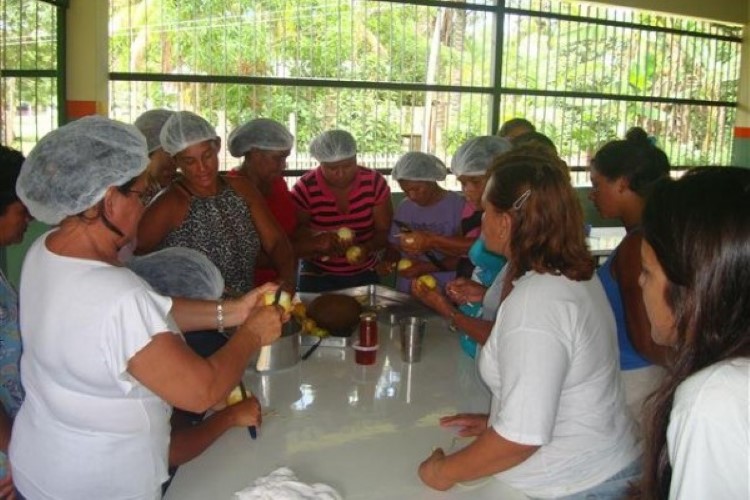
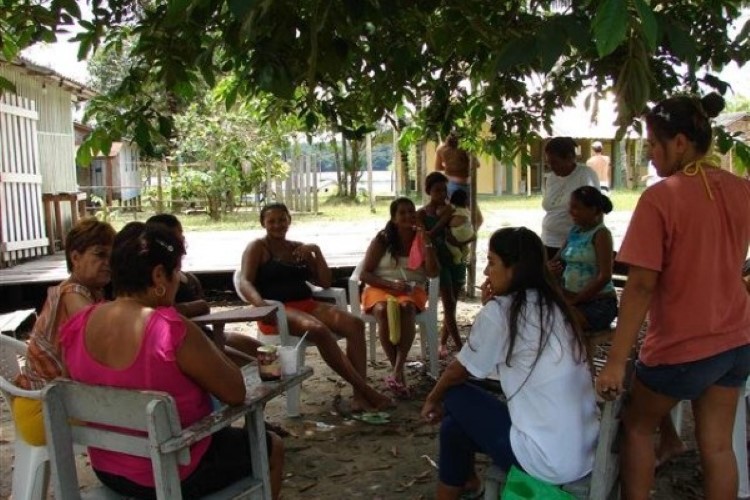
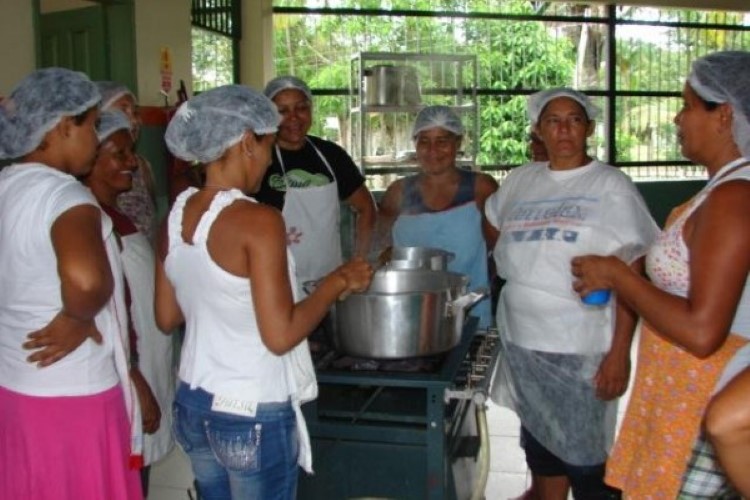
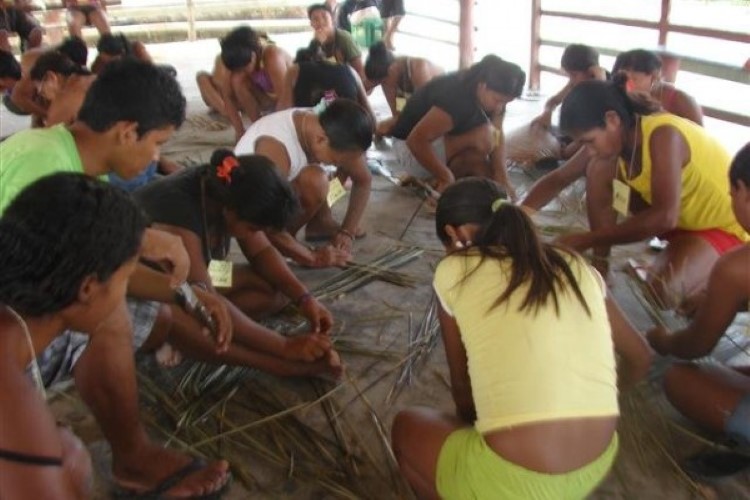
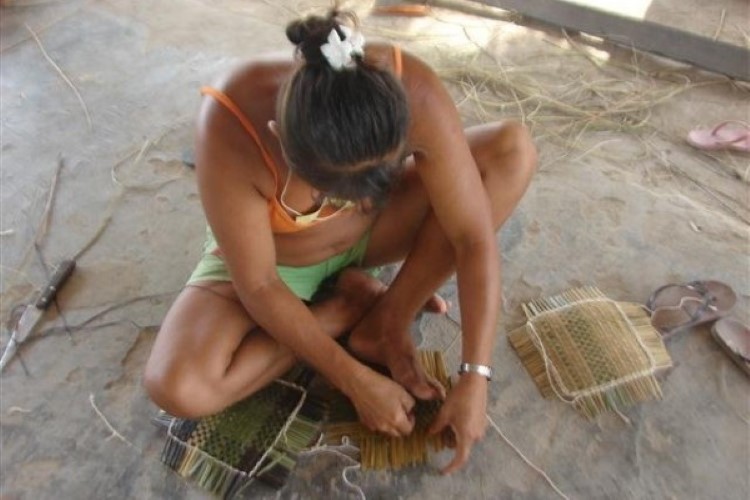
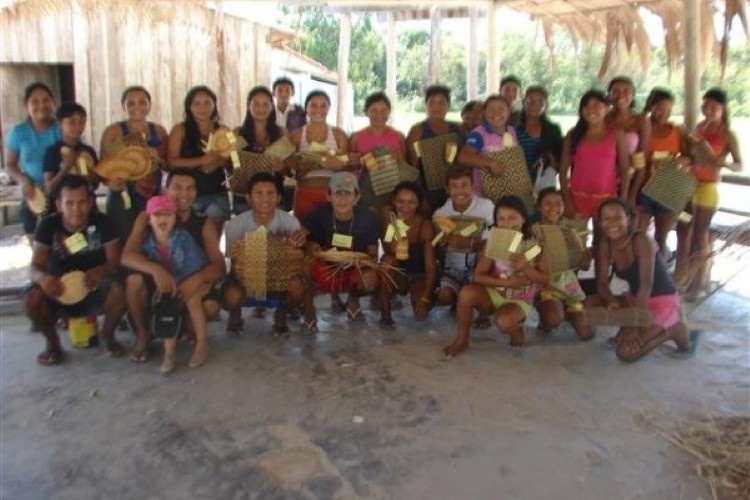
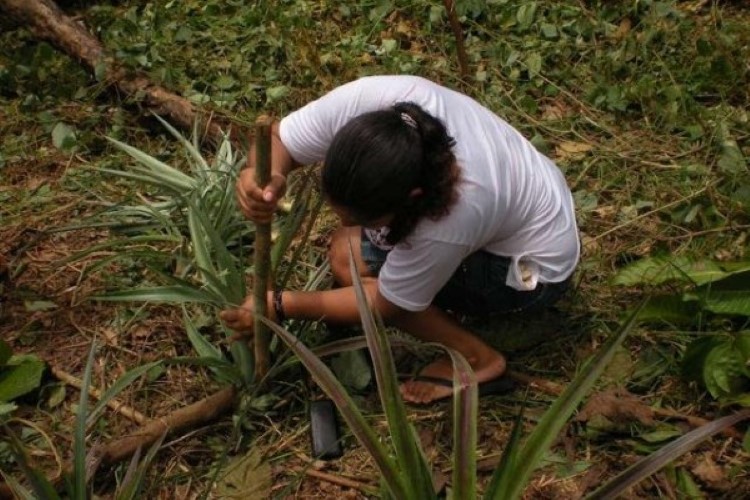
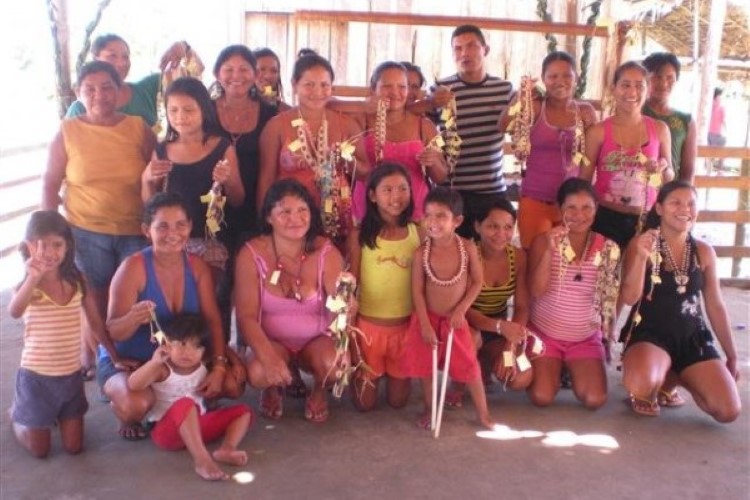
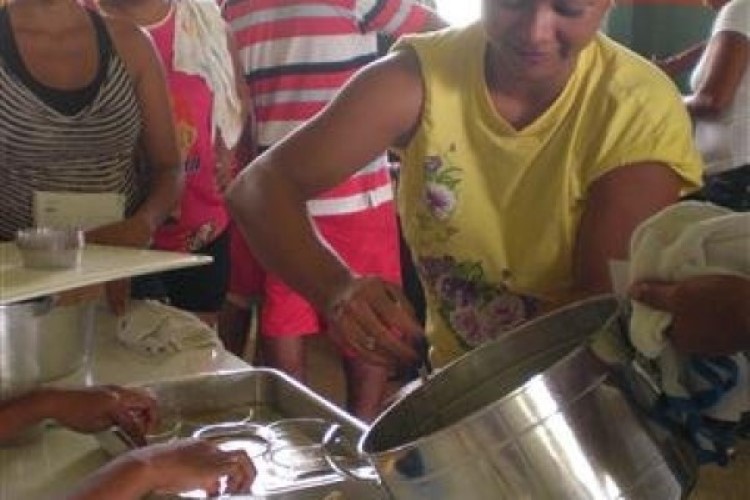
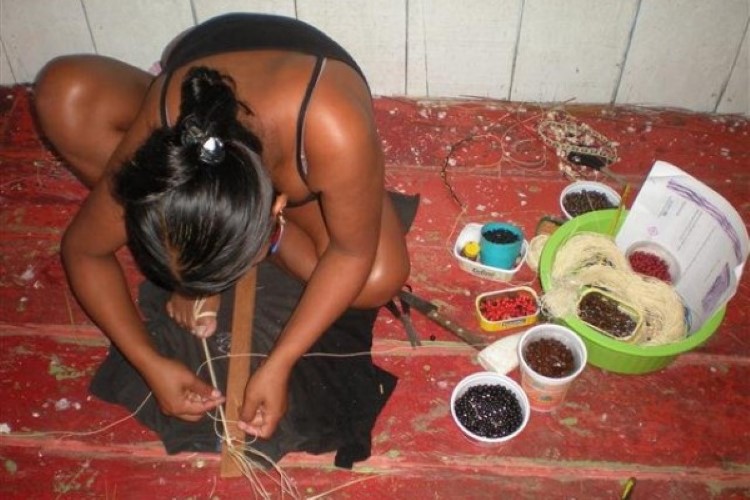
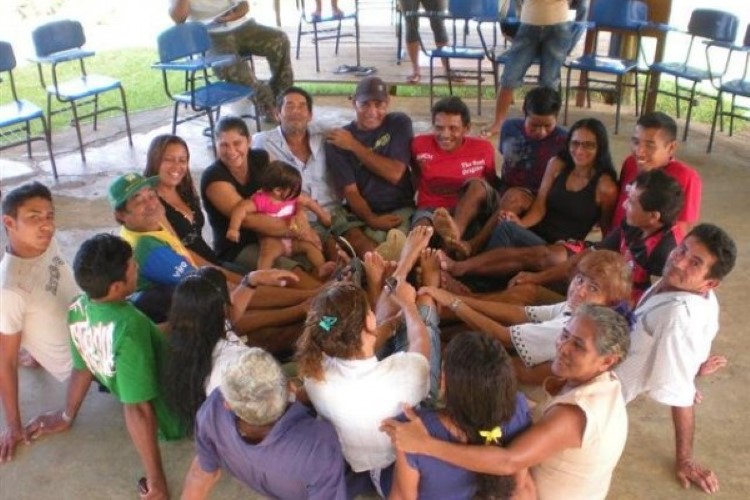
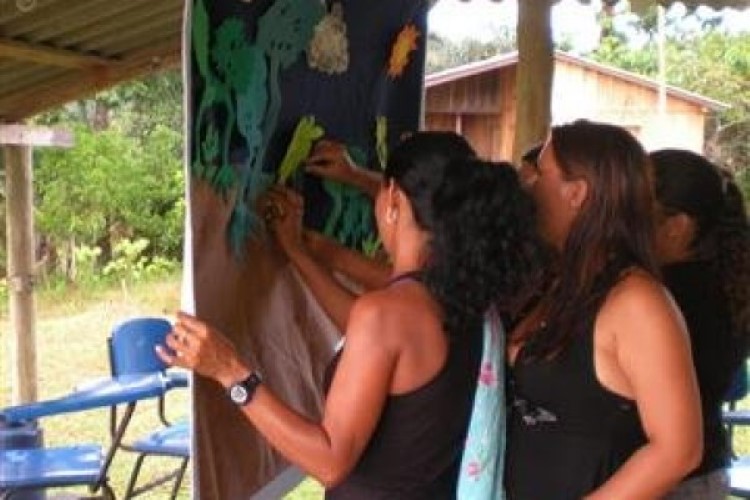
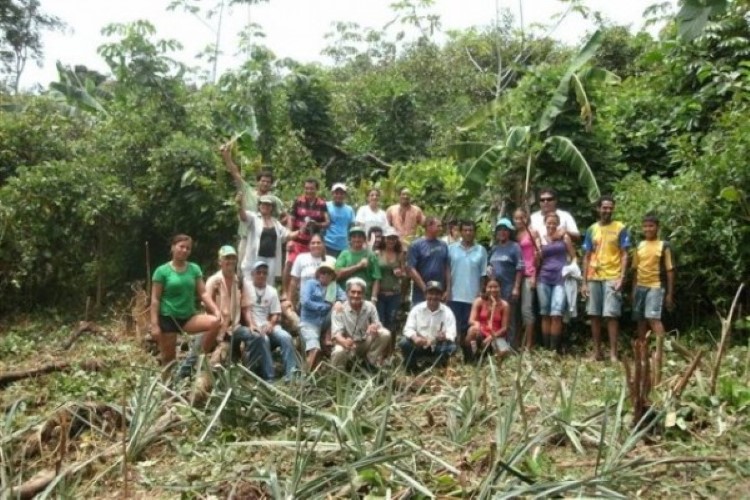
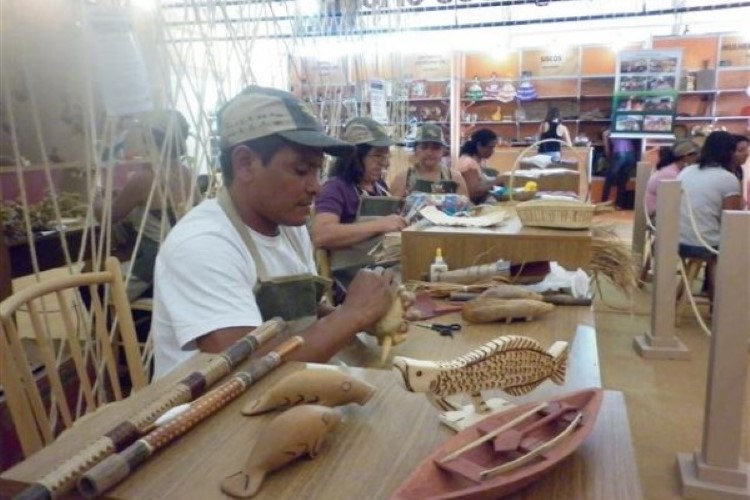
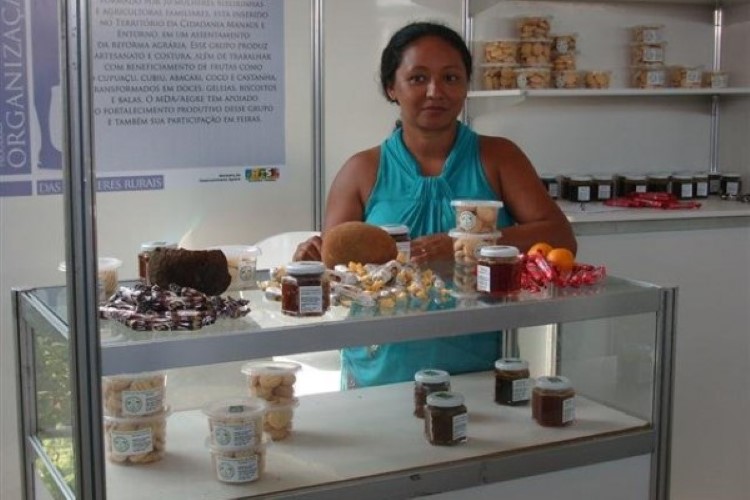
Rod. Dom Pedro I, km 47
Nazaré Paulista, SP, Brasil
Caixa Postal 47 – 12960-000
Tel: (11) 3590-0041
Termos de Uso | Estatuto
Copyright © Ipê – Instituto de Pesquisas Ecológicas.
Email: ipe@ipe.org.br